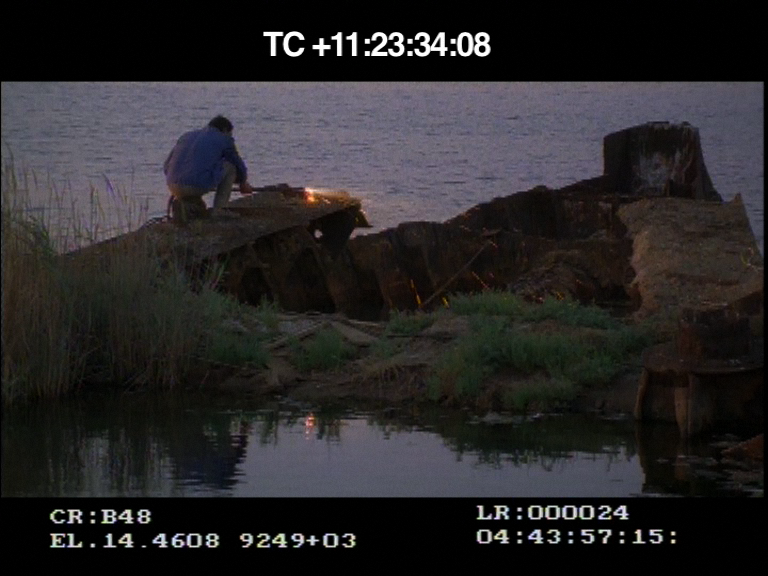Send Email to Moon Lake
Finally, some disparate images: the things that come up to the surface regarding the memory of the film, valuable in itself and acutely sensuous. These images skillfully intrude; they surreptitiously get under one’s skin. Their repetitions are rhythmical, related to periodically emerging sound motifs (not necessarily musical), and they slightly surprise each time. These are all familiar things estranged to the degree of impossibility. In this post mortem world, what is most ordinary looks most surprising.
The sun, twisted, torn apart, moving in jerks. Bloody. Lemon-yellow. Black. Gypsy fortune-tellers near the Fire foretell Orpheus that the world is going to end very soon, the sun will explode just in some four billion years, there is no time to even say goodbye. The sun in a frame, however, is never charged with ominousness. Rather, it is suffering, aged, doomed, and pacified. There is no aggression in the red colours of the sunrise, only the convulsive disruptions in its movement conveys that the rhythm of the world is ill beyond remedy.
The sea. A mirror. A distorted mirror. Another surface to tear apart and reverse. A sea to drown in. A sea-path to the secret cave.
The birds. Here, they fly both forwards and backwards, time can be turned inside out for them too. And only three immobile birds: three petrified cormorants, the only odd number in this world of couples.
The earth. Cracked, thirsty, scorched. Toponyms are written on it, toponyms of the geography of the Moon, that destination desired and never reached. As if the Moon has become imprinted on the Earth in an apocalyptic clash and every point of the Earth’s surface carries the memory of the impact.
The face of the Girl in Love. A constellation of sun- speckles. Blurry spots of paint. A sharp profile like the relief of a mountain. Thick lips uttering obscenities in estrangement. The camera seems to repeat after the Boy: “I love your dirty mouth.”
The narrative of the end of the world begins and ends in mud. It is of mud and mud it will become. The flight to the Moon is not going to take place. Here is also the deus ex machina – among all the ghostly bodies, dissolved in their reflections, there is a painfully concrete image: that strange anti-demiurge coming with the blowtorch to dismantle the fragile, nobly rotting world – the worker with the steel eyes and overalls, with wrinkles on his face and a masculine cigarette, the master who burns through the final full stop and goes to sleep. Salvation is cancelled.
Dorothea Tabakova – FORWARD IN THE REAR-VIEW MIRROR
